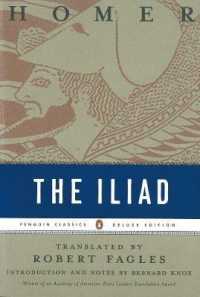Full Description
The post-apartheid era saw the South African government introduce a range of policies for building an inclusive education system. Inclusive Education in South African Further and Higher Education provides a historical overview of the evolution of inclusive education, alongside the emergence of concepts such as of equity and access, highlighting how these ideas have evolved, been enacted and practiced in the higher education institutions (HEIs) of South Africa since 2001.
Highlighting the barriers encountered in striving for inclusion in higher education in South Africa, chapter authors explore the significance of curriculum for inclusion and unpack the strategies of support and assessment in higher education. The critical aspects of inclusion and exclusion in higher education such as gender, language, technology and leadership are discussed and their impact on access, equity and inclusion is unmasked. Importantly, within this work is the principal and recognition of Indigenous and afro-centric knowledge in this space, how it is recognised and valued, and the manner in which it can be brought to the fore in decolonising the curriculum.
Whilst focusing on the South African context, the theoretical and methodological approach adds to the international understanding of access, equity and inclusion in higher education and provides important insights for policymakers, scholars, students and researchers in inclusive education and higher education globally.
Contents
Chapter 1. Introduction: Towards an Inclusive Higher Education; Tsediso Michael Makoelle and Cina P. Mosito
Chapter 2. The Historical Development of Inclusive Education in South Africa: Higher Education Perspectives; Thinavhudzulo Norman Mafumo, Michael Mbongiseni Buthelezi, and Mohammed Xolile Ntshangase
Chapter 3. Education Barriers in Higher Education; Sanet Deysel
Chapter 4. Higher Education Curriculum and Inclusion; Zandisile Mawethu Sitoyi and Johannes Buthelezi
Chapter 5. Strategies of Support for Inclusive Teaching and Learning in Higher Education; Thabo Makhalemele and Appolonia Masunungure
Chapter 6. Inclusive Assessment in Higher Education; Heloise Sathorar and Deidre Geduld
Chapter 7. Decolonisation of Higher Education, Indigenous Knowledge, and Inclusion; Xolani Khalo and Benjamin Damoah
Chapter 8. A Critical Review of Pre-service Teacher Education and Inclusion in the South African Higher Education Context; Cina P. Mosito and Lulama Mdodana-Zide
Chapter 9. Mentoring Pre-service Teachers for Inclusive Pedagogies; Tsediso Michael Makoelle
Chapter 10. Exploring the Value of Critical Disability Theory in Public Technical and Vocational and Training Colleges in South Africa; Lucky Maluleke and Anelisa Pezisa
Chapter 11. African Women Leaders in Universities: Using Memory in the Establishment of Leadership Practices; Siphokazi Tau and Dikeledi A. Mokoena
Chapter 12. Embracing the Melting Pot in Teacher Training: Language and Inclusion in Education; Erasmus Charambo and Shalom Ndhlovana
Chapter 13. Beyond Rhetoric: Reimagining Inclusive Education for Sexual and Gender Diversity in South African Higher Learning Institutions; Obakeng Kagola and Anthony Brown
Chapter 14. Leveraging Assistive Technologies to Advocate for Accessibility for Students with Disabilities, an Inclusive Curriculum Practice; Mohau Ben Manyarela, Mochina Mphuthi, and Ntsoaki Joyce Malebo
Chapter 15. Inclusion in Higher Education during Natural Disruptions: Lessons from the COVID-19 Pandemic; Maitumeleng Albertina Nthontho and Pontsho Moepya
Chapter 16. Conclusion; Tsediso Michael Makoelle








